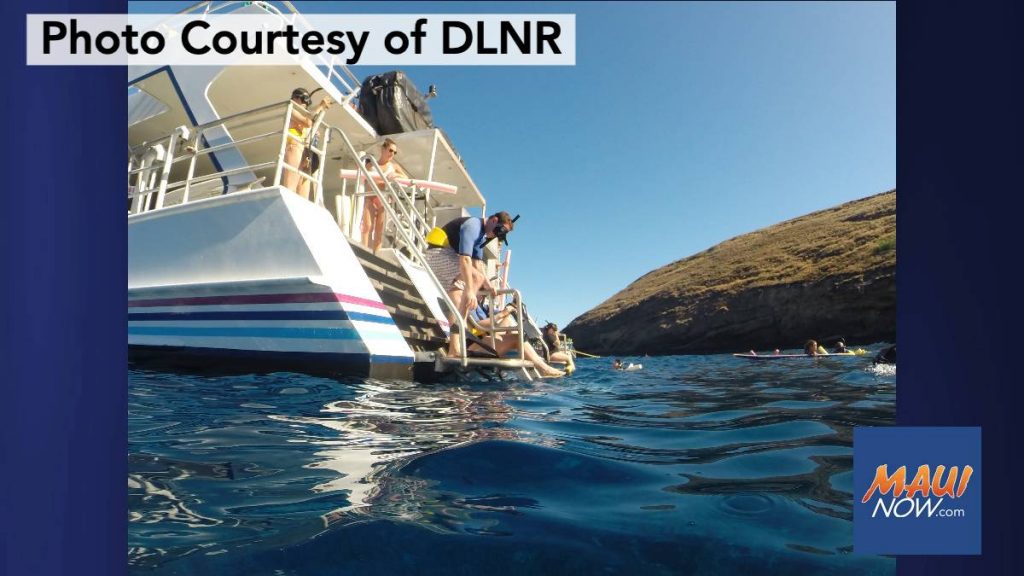Visitors to Pay for Ocean Protection and Conservation by 2024

A new law signed by Governor David Ige established a Hawai‘i Ocean Stewardship Special Fund, to be funded by user fees and other sources, that will provide support for the conservation, protection, restoration and management of Hawai‘i’s marine resources.
It put into place a user fee of $1 per person, collected by commercial ocean operators providing vessel-based activities to passengers or vessel-free services to customers.
Depending on tourism numbers, the user fee could generate anywhere from $14 million to more than $30 million over 15 years.
Some provisions of the law went into effect upon signing yesterday, but the user fee will not begin until Jan. 1, 2024.
“Hundreds of millions of visitors have enjoyed our magnificent ocean resources for decades without directly contributing to the management and protection of them,” said DLNR Chair Suzanne Case. “This new fund provides a framework to collect fees from visitors who use our waters.”
In addition to user fees, other sources will contribute to the fund. These include State land lease revenues (lands, facilities, equipment) under DLNR jurisdiction that are utilized for or dedicated to the management, research, restoration, and enhancement of aquatic resources.
“Our beautiful oceans and vibrant ecosystems set Hawaiʻi apart from other visitor destinations,” DLNR Division of Aquatic Resources Administrator Brian Neilson commented. “Our oceans are under continuing threats from repeated coral bleaching events, pollution, marine debris, and unsustainable fishing practices. The economic importance of ocean tourism requires a steady investment for critical marine management. The Ocean Stewardship Special Fund is a win-win for reefs, residents, visitors, and the economy across the state.”
The Ocean Tourism Coalition supported the law, HB1019, and the establishment of the special fund as a mechanism for DAR to appropriately manage the nearshore resources that OTC members depend on for their livelihoods, recreation, and subsistence.
Jim Coon of Trilogy Excursions on Maui is the OTC President. He said, “When agencies can work with stakeholders to achieve mutually beneficial outcomes there are immediate Kuleana goals that are achieved. There is also the long-term trust that results and builds from open dialogue and mutual understanding of each other’s needs. We look forward to continuing to partner with DAR as the planning and rulemaking begins. OTC supports the pono stewardship of resources to ensure that our near shore waters and coral reefs can be managed in a way that is responsible, sustainable, and economically viable.”
State officials say this sustainable funding source is critical as the state implements its Holomua: Marine 30×30 Initiative to effectively manage the State’s nearshore waters. The initiative establishes 30% of nearshore waters as a network of marine management areas to benefit fisheries and ecosystem resilience by the year 2030.







